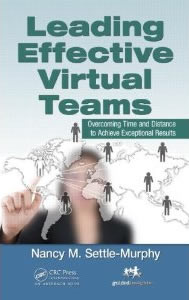If anyone appreciates the value of asking really great questions, it’s a facilitator. After all, my job is to stimulate thought, encourage reflection, generate conversation, and help people make important connections. To do this, I need at least a few essential questions to insert into the conversation at just the right time.
Crafting these “perfect” questions can be a real struggle, as they should be. That’s why James Ryan’s book Wait, Wait and Life’s Other Essential Questions was such a great gift (thanks, Joyce!). Dean of Harvard’s Graduate School of Education, Ryan’s graduation speech in May 2016 went viral, leading him to write this wonderful gem of a book, which is the basis of this month’s edition.
What constitutes an essential question? To me, an essential question is engaging, relevant and provocative, and it’s designed to spark curiosity, invite reflection and prompt a deeper level of inquiry. Answering an essential question is often difficult, and can provoke a spirited debate, lead to a surprising agreement, and almost always, opens our mind to learning. The reply requires more than a few words, and more often than not, requires support or evidence.
In this edition of Communique, I summarize each of Ryan’s five essential questions, which he likens to keys, each of which can open a door to something you don’t yet know, or to something new you had never considered.
1. Wait, what? Depending how and when you ask it, this two-word question is deceptively simple and flexible. When my teenage girls use it, they emphasize and elongate the wait to indicate incredulity, as they might when they deem my outfit as being entirely unsuitable for going out in public, especially with them. When they emphasize the what, on the other hand, it’s more often to express shocked surprise, such as when I remind them that their share of the wireless bill is past due.
Ryan considers this the #1 essential question because it seeks clarification as a means of understanding. By starting with wait, we’re indicating that we need a pause to make sure we’re clear about an important concept so we don’t make snap judgements or poorly-informed decisions. So next time someone calls an idea of yours absurd (or worse), assume that what they’re really asking is Wait, what? and pause to clarify and explain before defending your viewpoint.
2. I wonder…? When paired with if or why, asking I wonder…? helps us to engage our brains with the world (and people) around us. Asking why focuses on the present or past, while asking if helps us to imagine the future. Anyone who’s had a small child has been at least occasionally frustrated when she incessantly asks why. As kids reach school age, they usually stop asking so many questions, perhaps because they are dedicating a large portion of their brains to learning facts, or perhaps they have simply grown tired of being shushed. Regardless of age, we’d all benefit by asking why way more often. For example: If I stop to wonder why a colleague suddenly stopped talking, I might pause the discussion and gently ask him what’s on his mind. Or if I pause to wonder why the driver ahead of me suddenly veered off to the side of the road, I might avoid hitting the five-car pile-up in front of me.
Asking I wonder if…? opens our thinking to new possibilities about the future. For example, when I praised the artwork my daughter brought home each week, I stopped to wonder if I could draw and paint without embarrassing myself. (Turns out, I can!) When a client described tensions with her manager, I encouraged her to complete the question: What if we…..?
While I wonder why…? and I wonder if…? are not exactly interchangeable, they often go hand in hand. For example, only after I learn why my meeting agenda is not working, can I determine if certain tweaks will improve the outcome.
3. Couldn’t we at least…? I love this question, because it’s all sparking movement, trying to find that elusive common ground and getting unstuck. If a group is bogged down due to disagreement about some really key issues, we might ask: Couldn’t we at least agree on these other things? Or to help galvanize people who desperately need a bit of common ground to work from, we might ask: Couldn’t we at least begin by agreeing on a definition of shared success? Especially today, when civilized discourse is increasingly rare among those whose views are so diametrically opposed, finding just a bit of common ground to connect us at some level can be a great place to start.
4. How can I help? Most people I know will drop just about everything to lend a hand in times of need, but sometimes they don’t know how best to help without asking. (After all, the kind of help we would want in the same situation may be very different from the help our friend most needs.) By asking this question, you show compassion and generosity without conveying pity, which tends to diminish the other’s power.
Asking how you can help often creates greater self-awareness by the other about issues they’re struggling with. By asking how you can help, you are letting the other person own the responsibility, and the power, for solving their problems. For example, if I see that my daughter is melting under the stress of a punishing homework load, I (gently) ask what might help. Sometimes she needs to pause for sustenance, a quick physical activity, a chance to vent, or just to remind herself that it’s okay to be less than perfect. Or, if your team member is struggling to complete a crucial task, asking how you can help, rather than suggesting a solution, will help him figure out what he needs to do to get his work done, which ultimately, will increase his confidence and competence.
5. What Truly Matters? This is a big question that’s equally useful in all aspects of life – at work, at home, and out in the world. By thinking it through and answering it honestly, we can start to weed out, or at least postpone, things that don’t warrant our time or energy. For example, my daughter has to remind herself that her exact G.P.A. matters far less than her physical and emotional well-being. When I’m working on a challenging project, I often ask myself which matters more: meeting a deadline or producing a certain quality of work, since sometimes achieving both is simply not possible. By being intentional about what matters most, we are consciously choosing where to invest our precious psychic energy, before things get out of hand.
Socrates knew that by asking probing, provocative questions, we have the power to uncover assumptions, explain complexities and sharpen our ability to think clearly and critically. In today’s society, where conversations often feel rushed and superficial, this ability and willingness to engage in deeper levels of conversation is rare. Let any one of these five questions serve as a springboard to a thoughtful, engaging discussion, whether at work, at home, or out in the world. Asking What truly matters? might be the best place to start.
Links
Using questions to facilitate better dialogue – excerpt from my 90 Tips for Planning and Leading Exceptionally Engaging Virtual Meetings tips guide, available to order as downloadable PDF
Past Communiques:
To get people talking, try asking the right questions
Make better decisions with less pain, virtually
Books
Wait, Wait? And Life’s Other Essential Questions by James Ryan
Essential Questions by Jay McTighe and Grant Wiggins




